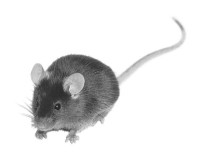Why nocturnal nosh-ups make you fat
Eating in the middle of the night makes you fat. We know this from studies on the eating habits of fat people and dieticians' experiences. Sleep researchers at Northwestern University published their findings from an animal study, which make it clear why eating during the part of the day when you are usually asleep makes you so fat.
[FONT="]
[/FONT]

[FONT="]
[/FONT]
Study
The researchers experimented with male mice, placing them for 12 hours a day in the dark and 12 hours in the light. Mice are nocturnal animals and therefore active at night. We, the strange bipeds that call themselves Homo sapiens, are daytime animals.Normally speaking, mice eat at night and we eat during the daytime. But technological innovations such as the electric lamp, TV, deep freeze pizza and microwaves have changed our eating habits. More and more people are eating more frequently during the late evening and night. The researchers were curious whether this unnatural eating pattern is related to the obesity epidemic.
The researchers devised an experiment with 17 C57BL/6J mice. There's a photo of one below. The researchers gave one group of these mice food only when it was light [light-fed], and another group food only when it was dark [Dark-fed]. The mice were given food that had a high fat content. This kind of food fattens rodents fast.
Results
The figure below shows that the mice with the 'unnatural' eating pattern [Light-fed] gained more weight than the mice in the other group.[FONT="]
[/FONT]


[FONT="]
[/FONT]
The figure above shows that the mice that ate at the time when they should have been sleeping ingested slightly more calories than they otherwise would have done. The difference is not very big, however. The effect on their activity level is bigger: the mice that ate at an 'unnatural' time moved less and therefore expended less energy.
Conclusion
"A preventive strategy based on behavior modification (e.g., the timing of food intake), possibly without a significant change in caloric intake or physical activity, could be a critical element needed to slow the ever-increasing incidence of obesity and associated cardiometabolic disorders facing the world today", the researchers conclude.
Source:
Obesity (Silver Spring). 2009 Nov;17(11):2100-2.
Eating in the middle of the night makes you fat. We know this from studies on the eating habits of fat people and dieticians' experiences. Sleep researchers at Northwestern University published their findings from an animal study, which make it clear why eating during the part of the day when you are usually asleep makes you so fat.
[FONT="]
[/FONT]

[FONT="]
[/FONT]
Study

|
The researchers devised an experiment with 17 C57BL/6J mice. There's a photo of one below. The researchers gave one group of these mice food only when it was light [light-fed], and another group food only when it was dark [Dark-fed]. The mice were given food that had a high fat content. This kind of food fattens rodents fast.
Results
[/FONT]


[FONT="]
[/FONT]
The figure above shows that the mice that ate at the time when they should have been sleeping ingested slightly more calories than they otherwise would have done. The difference is not very big, however. The effect on their activity level is bigger: the mice that ate at an 'unnatural' time moved less and therefore expended less energy.
Conclusion
"A preventive strategy based on behavior modification (e.g., the timing of food intake), possibly without a significant change in caloric intake or physical activity, could be a critical element needed to slow the ever-increasing incidence of obesity and associated cardiometabolic disorders facing the world today", the researchers conclude.
Source:
Obesity (Silver Spring). 2009 Nov;17(11):2100-2.


